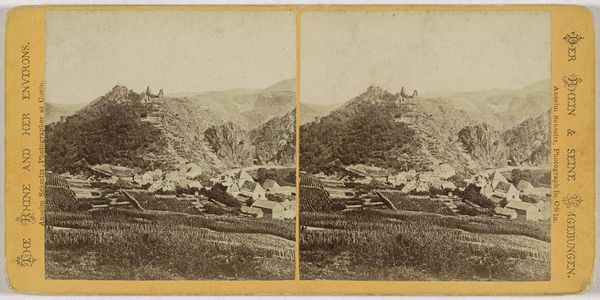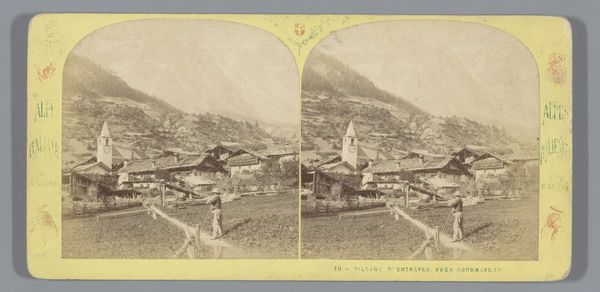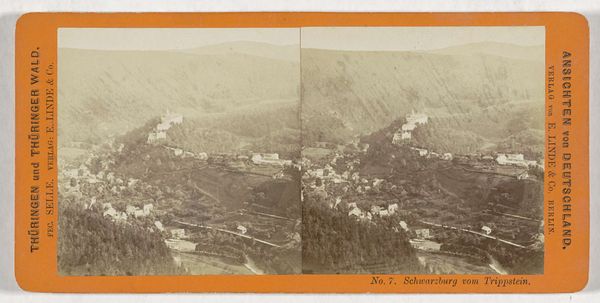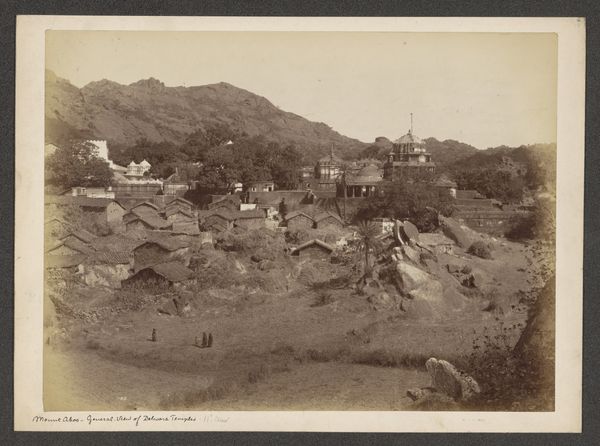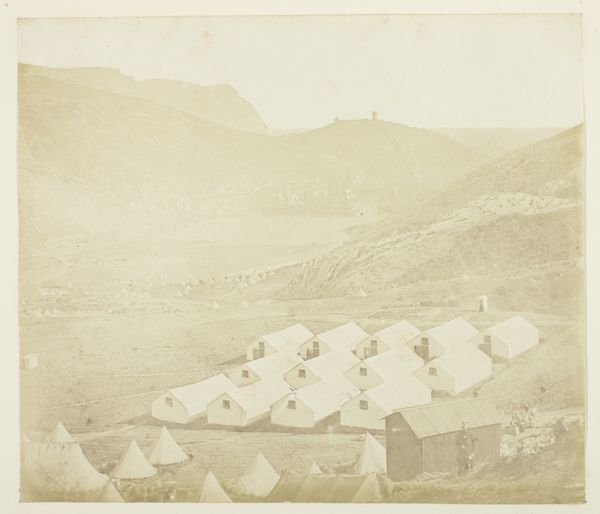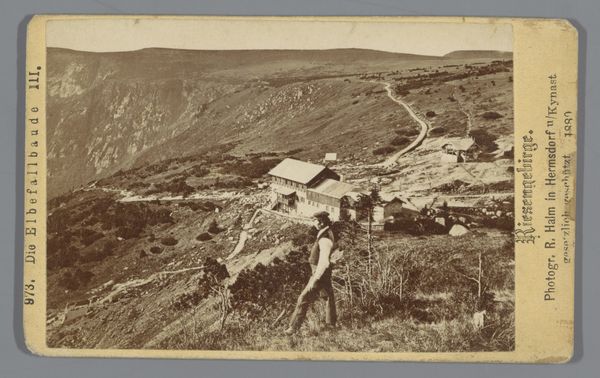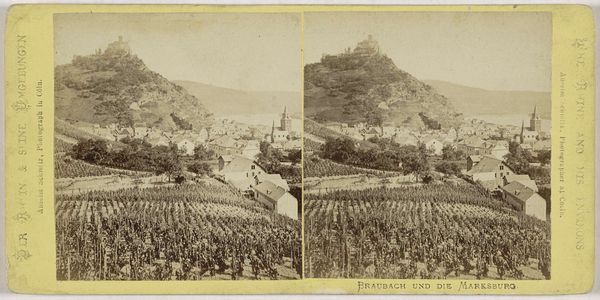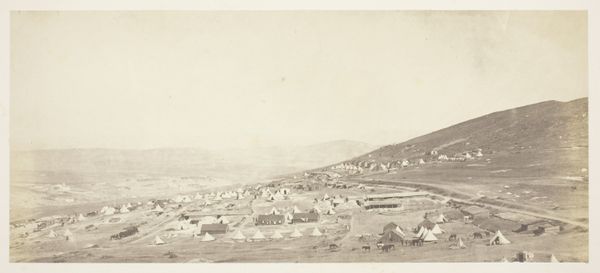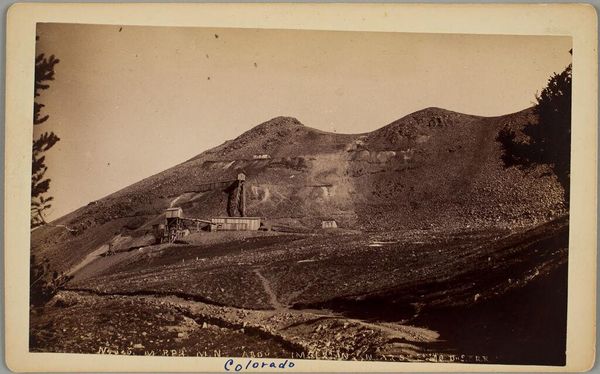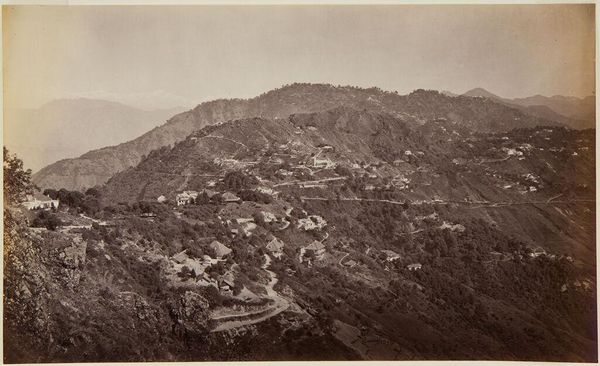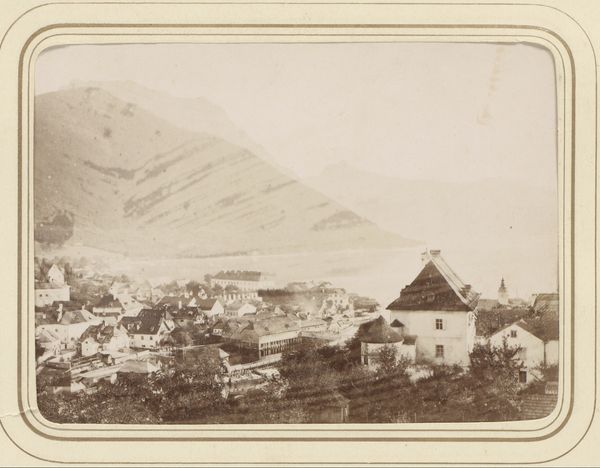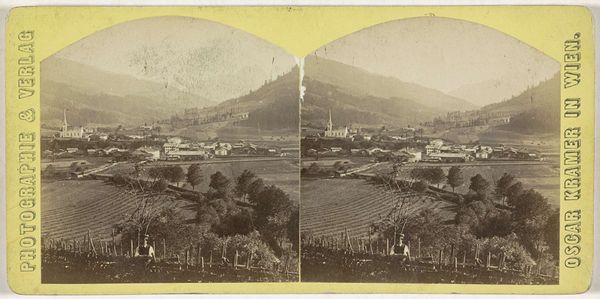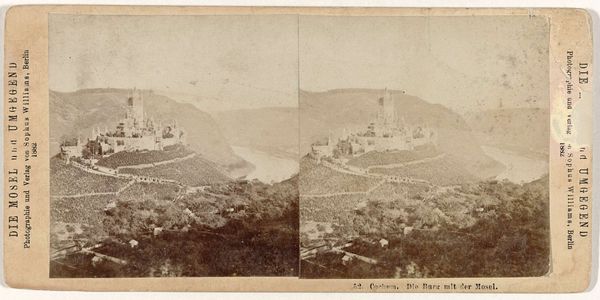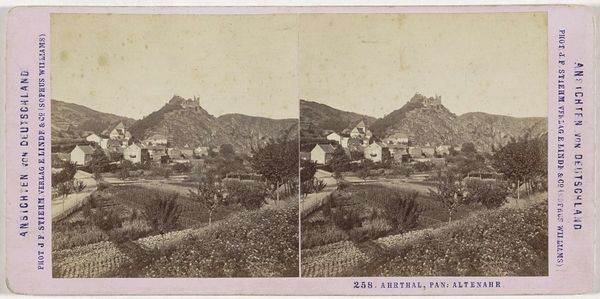
print, daguerreotype, photography
#
16_19th-century
# print
#
landscape
#
daguerreotype
#
photography
#
cityscape
Dimensions: height 86 mm, width 179 mm
Copyright: Rijks Museum: Open Domain
Editor: This daguerreotype, “Gezicht op Altenahr en Burg Are in het Ahrdal, Duitsland” by Carl Heinrich Jacobi, feels very romantic with the ruins overlooking the little town. What kind of context am I missing here? Curator: Well, what do you notice about how the town is placed in relation to the landscape? What does the inclusion of the Burg, or castle, tell us about power? Think about the date, too – 1868-1871. Germany was in the process of unification. How might landscape photography participate in nation-building? Editor: That's a great point. I guess the picturesque qualities could mask the complex socio-political situation? The castle is in ruins, hinting at a certain history of conflict or transition of power… a feudal system in decline. Curator: Precisely. And consider the rise of the middle class, newly enfranchised, eager to participate in the Grand Tour. How does photography make places like this accessible and perhaps reinforce notions of German cultural heritage and identity? Editor: So, it’s not just a pretty picture then; it's connected to major shifts in power, class, and even national identity? Curator: Absolutely. Landscape wasn't merely scenery; it was deeply enmeshed in constructing narratives of belonging and exclusion. Thinking about those things in art changes our perspective. Editor: I see it now! Thanks. That helps to provide a whole different view to simply appreciating its beauty. Curator: It’s about peeling back the layers, challenging the assumptions that underpin even the simplest-seeming image. I learn more by asking these questions than if I'm just provided an answer.
Comments
No comments
Be the first to comment and join the conversation on the ultimate creative platform.
